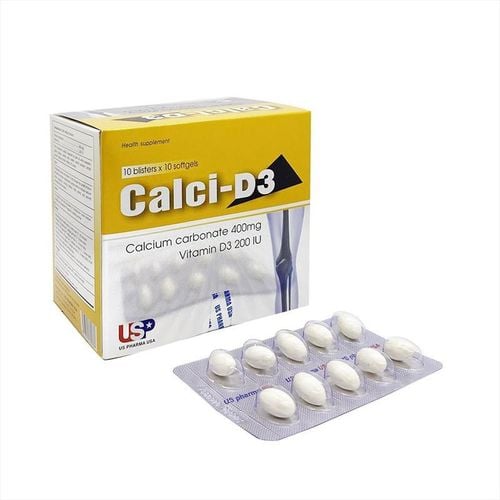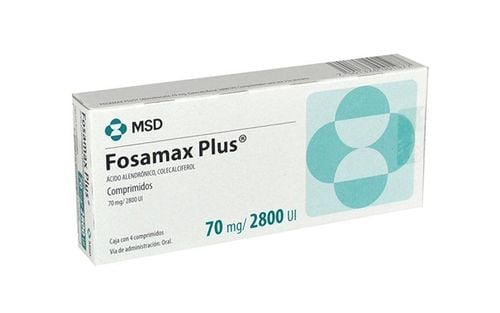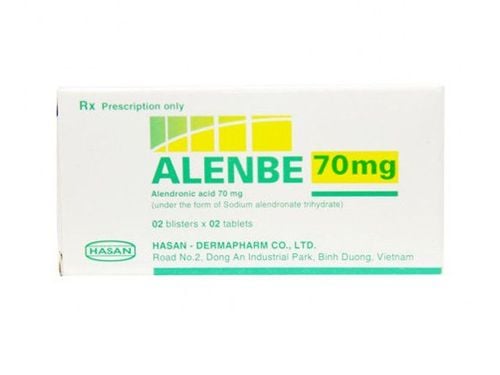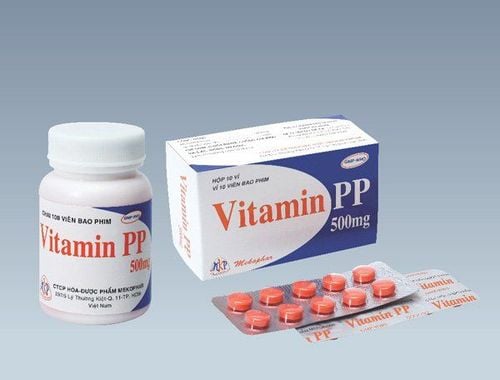This is an automatically translated article.
Calcium stada vitamin C PP is indicated in calcium deficiency such as rickets, cases with high calcium requirements. Let's learn about the uses and notes when using Calcium stada vitamin C PP through the article below.
1. Ingredients in the drug Calcium stada vitamin C PP
Each tube of Calcium stada vitamin C PP 5ml contains:
Calcium glucoheptonate 0.550 g (as calcium glucoheptonate dihydrate); Vitamin C (ascorbic acid) 0.050; Vitamin PP (nicotinamide) 0.025 g. Excipients:
Hypophosphoro acid, sucrose, sodium sulfite, potassium sorbate, sodium hydroxide, strawberry flavor, purified water.
2. Indications for calcium stada vitamin C PP
Calcium deficiency: Rickets, calcium supplements when the daily diet may not be adequate; Cases with high calcium requirements such as growing children, the period of recovery of movement after fractures after prolonged immobilization, pregnant and lactating women; Calcium supplementation in the treatment of osteoporosis due to various causes, prevention of pre- and post-menopausal bone mineralization reduction, corticosteroid use, and bone calcium loss in the elderly.
3. Contraindications of Calcium stada vitamin C PP
Patients with hypersensitivity; Severe renal dysfunction; Calcium nephrolithiasis, hypercalcemia and urinary calcium. Avoid taking high doses of vitamin C:
History of kidney stones (increased risk of kidney stone formation). G6PD deficiency (risk of hemolytic anemia). Thalassemia disease. Avoid high doses of nicotinamide in patients with: Severe liver disease, arterial bleeding, advanced peptic ulcer, severe hypotension.
4. Usage and dosage
Calcium stada vitamin C PP is used orally with the following dosage:
Children: Take 5-10 ml x 2 times/day, morning and noon; Adults: Drink 10-20 ml x 2 times/day, morning and noon.
5. Side effects
Some side effects when using Calcium stada vitamin C PP that you may experience:
Very rare: Mild gastrointestinal upset. Rare (long-term high doses): Hypercalcemia, calciumuria. Vitamin C dose ≥ 1 g/day: May cause acidification of urine, diarrhea, precipitation of urate, cystin or oxalate stones, drugs in the urinary tract. Vitamin C dose ≥ 3 g/day: Digestive disorders. High doses of nicotinamide can cause flushing (especially of the face and neck), stinging or stinging pain in the skin, a burning sensation, and nausea.
6. Use caution
Calcium stada vitamin C PP contains sodium sulfite, which rarely causes severe hypersensitivity reactions and bronchospasm.
Calcium salts should be used with caution in patients with renal failure or conditions associated with hypercalcemia such as sarcoidosis and certain malignancies.
Note the sodium content and the Saccharose content (2.5 g/5 ml) when assigning to patients abstaining from salt and diabetes.
This medicine should not be used in patients with rare hereditary problems of fructose intolerance, sucrase Isomaltase deficiency or glucose-galactose malabsorption.
Prolonged use of high doses of vitamin C can lead to "resistance phenomenon", when the dose is reduced to normal, it will lead to scurvy.
Hemolysis can occur when vitamin C is given to infants with G6PD enzyme deficiency and to otherwise healthy premature infants.
Nicotinamide should be used with caution in patients with a history of peptic ulcer disease, gout, liver failure, and diabetes.
Please dial HOTLINE for more information or register for an appointment HERE. Download MyVinmec app to make appointments faster and to manage your bookings easily.













